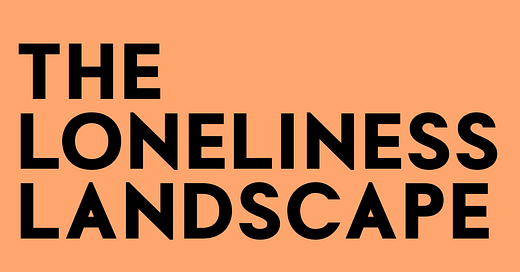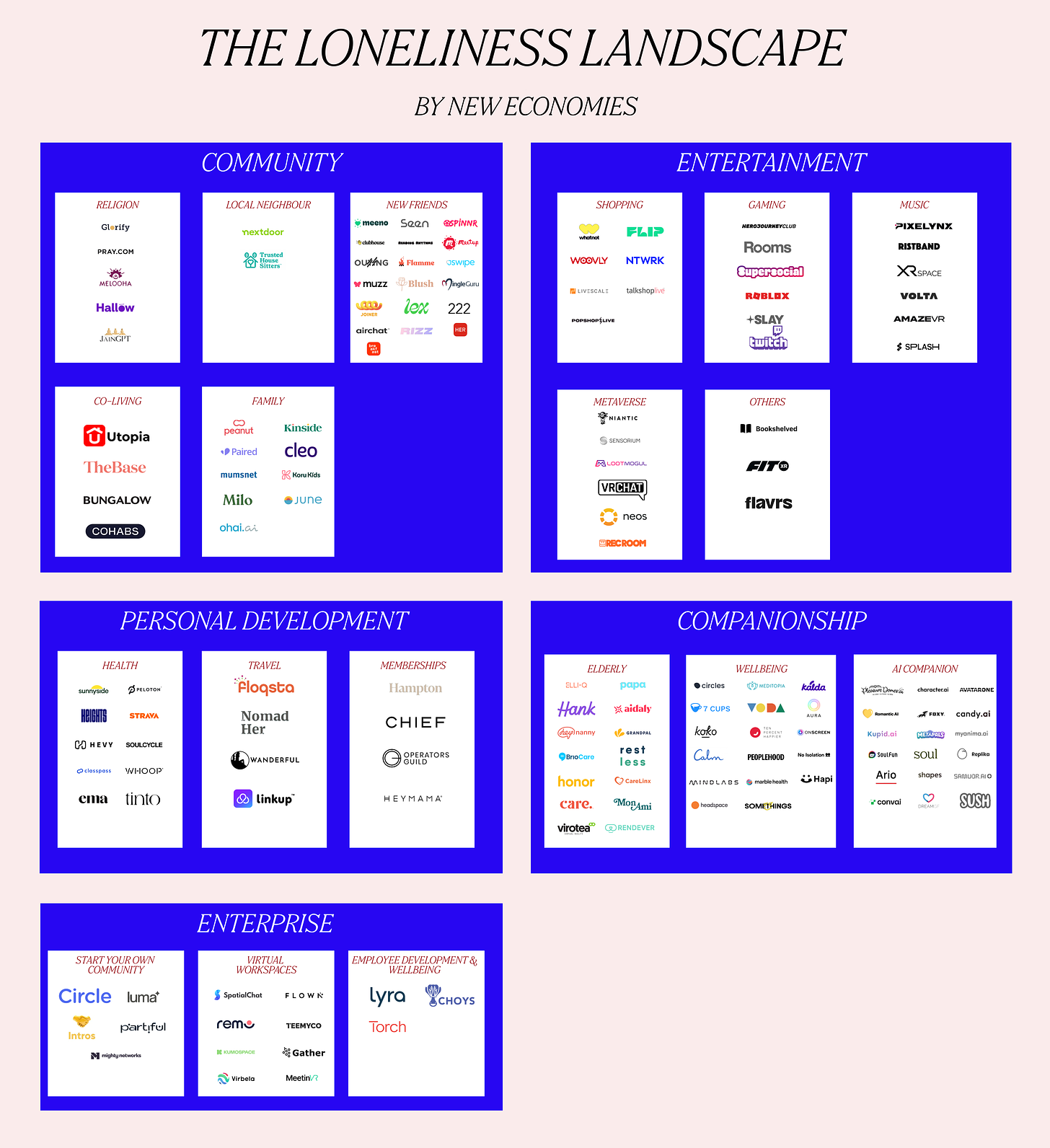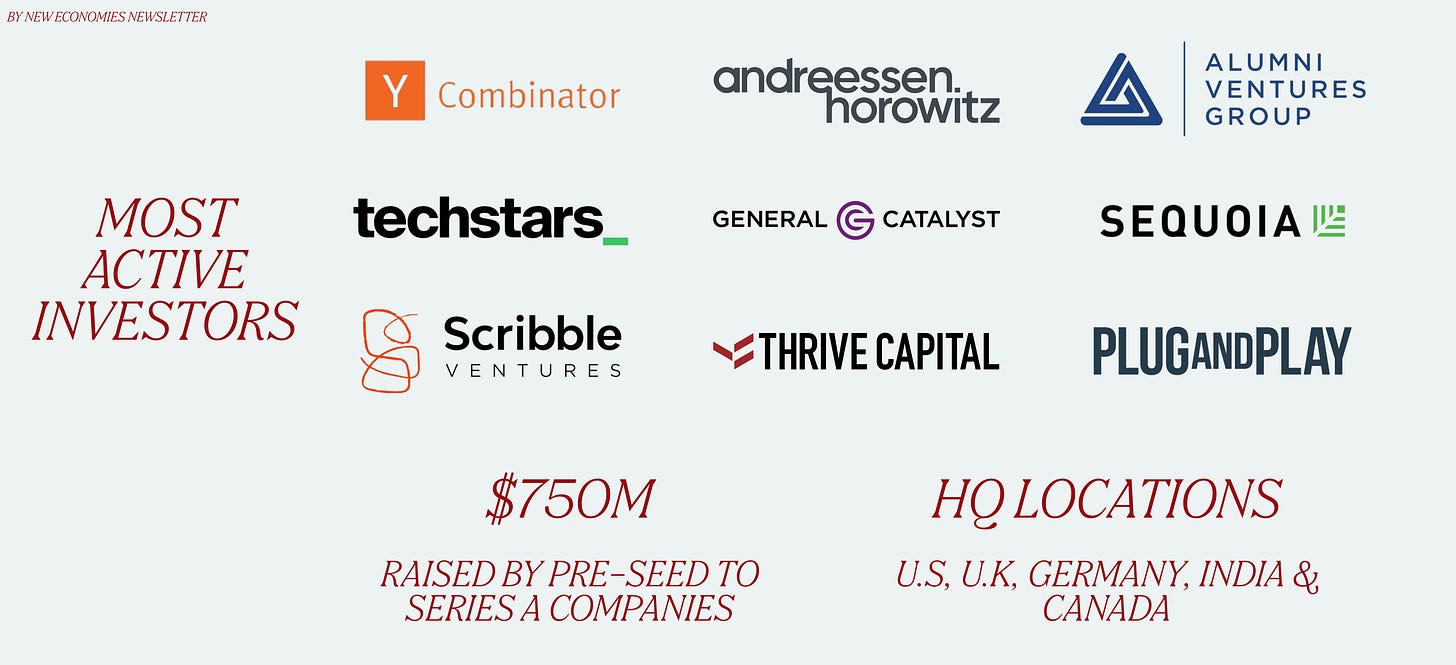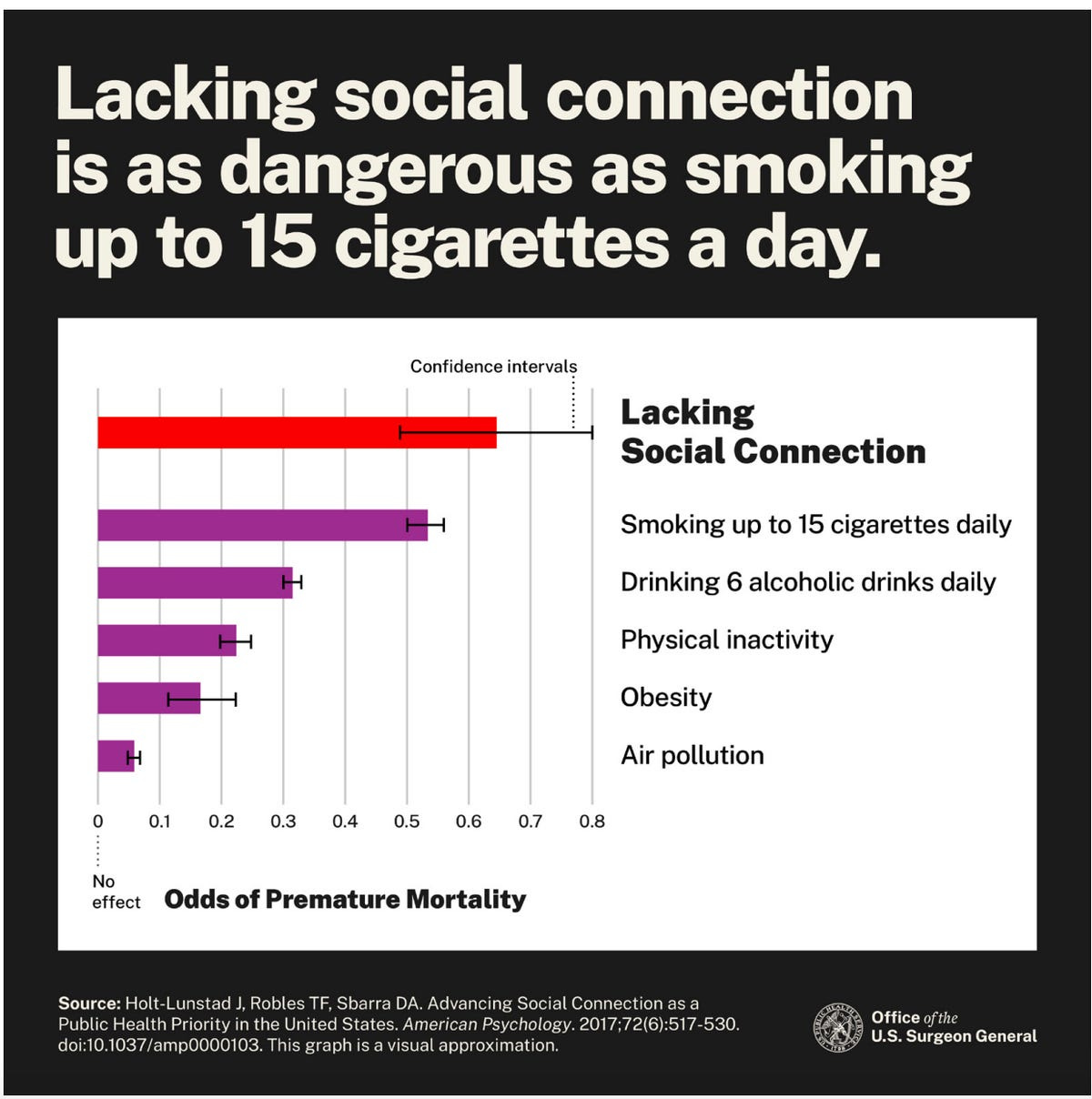Hey Readers 👋
Welcome to New Economies, where we discover and share the latest tech trends shaping our world. In this edition, we’re sharing a pressing issue: individual loneliness. We’ll explore its impacts, the startups innovating in this space, and the big question—can AI offer a solution?
Lately, more friends and peers have been openly sharing their feelings of loneliness, mentioning that they are not going out to meet friends as often as they used to since COVID. Instead, they are spending more time at home, often alone.
This edition was inspired by the film Her which I recently watched, where Theodore Twombly, portrayed by Joaquin Phoenix, develops a romantic relationship with an AI virtual assistant named Samantha (voiced by Scarlett Johansson). What once seemed unimaginable back in 2013 when the film was released—a relationship with an AI girlfriend—has now become a reality.
In this edition of New Economies, we explore:
The Loneliness Epidemic: Who is affected and why
150+ startups hoping to solve the problem
The impact of loneliness and whether AI can provide solutions
And more!
How did we get here?
When I asked my parents, parents' generation how they dealt with loneliness, they often seem surprised. It was a rare occurrence for them, and when it did happen, they simply carried on. Today, we are a society where 1 in 4 of us are feeling some form of loneliness which can of course mean all different types of emotions. However, it’s mostly occurring in those under the age of 30.
According to recent research, nearly 1 in 4 adults across the world have reported feeling very or fairly lonely. The new survey, taken across 142 countries, found 24% of people age 15 and older self-reported feeling very or fairly lonely in response to the question, “How lonely do you feel?”
The survey also found that the rates of loneliness were highest in young adults, with 27% of young adults ages 19 to 29 reporting feeling very or fairly lonely. The lowest rates were found in older adults. Only 17% of people age 65 and older reported feeling lonely.
Over half of adults age 45 and older reported not feeling lonely at all, while the majority of those younger than 45 answered that they felt at least a little lonely, if not very or fairly lonely.
While there was little or no difference in the reported loneliness between men and women, some countries had substantial gaps in both directions, depending on the country’s cultural context. Overall, 79 out of the 142 countries had a higher self-reported rate of loneliness in women than men.
So, can AI solve part of the loneliness problem?
The Loneliness Landscape
These statistics might come as a surprise to some and seem less shocking to others. Regardless, hundreds of startups are actively working to address this significant challenge. In our latest market map, we've organised these platforms into various categories and subcategories to help you navigate this evolving landscape.
Community: Supporting consumers in becoming more connected
Categories: Religion, Local Neighbours, New Friends, Co-living, Family
Entertainment: Alternative ways for consumers to become connected online
Categories: Shopping, Gaming, Music, Metaverse, Others
Personal Development: Platforms offering alternative ways for you to become connected through personal development
Categories: Health, Travel, Memberships
Companionship: Platforms offering a companion to speak with
Categories: AI Companion, Wellbeing, Elderly
Enterprise stack: Software platforms which can help employers reduce loneliness within their workforce
Categories: Start your own community, Virtual Workspaces, Employee Development & Wellbeing
Disclaimers:
Most startups at the date of publication, appear to be operating
Each startup has been categorised based on how they describe themselves on their marketing website
Regional or very specific community type of startups may have been excluded
If we missed you and you would like to be included next time - comment on the latest post here.
Platform Characteristics
From the 150+ platforms listed, we found the following characteristics and insights:
The top investors include YC, a16z, Alumni Ventures and others listed below
$750M+ has been raised from Pre-seed to Series A startups
The top 5 locations where these platforms are located in order are: U.S, U.K, Germany, India & Canada
A large number of platforms were launched in 2020 (also the year of COVID)
Learnings from the landscape
The rise of AI relationships
The emergence of AI relationships is a growing trend. New startups such as Pleasure Domes, Foxy AI and Candy AI offer virtual companions, also known as virtual girlfriends and boyfriends. These platforms are likely to gain popularity among specific demographics, potentially individuals who may have never been in a relationship. However, these startups will likely face a few challenges such as: Determining the duration of consumer engagement with their virtual companions, finding sustainable revenue models, and assessing the authenticity of these AI-driven relationships.
According to a few founders I have spoken with who are building in this space, the following was mentioned:
1 in 5 men on dating apps have experimented with AI girlfriend platforms at least once.
In East Asia, many women are turning to AI boyfriends. One platform alone has seen 40 million interactions.
Watch this space!
Membership platforms
Membership platforms are on the rise. Consumers want to consume information from the creators and communities who they enjoy learning from. We’ve seen the likes of CHIEF who ‘‘Raise your leadership game’’ and Hamptons, a private, highly vetted community for founders, entrepreneurs, and CEOs as examples. In the future, we will see these types of communities emerge with many likely being hyper niche.
Entertainment platforms
Gaming is particularly exciting, with 3.2 billion gamers globally and the time they spend online is increasing. Those who feel lonely at times often resort to going online to take their mind off things. Across entertainment platforms, live shopping platforms continue to emerge, music and a few metaverse platforms.
How AI impacts loneliness
AI potentially plays a crucial role in addressing loneliness by offering innovative solutions to enhance human connection and wellbeing support. One significant way AI contributes is through virtual companionship and emotional support systems. Chatbots and virtual assistants equipped with natural language processing capabilities can engage in meaningful conversations, providing companionship and reducing feelings of isolation for individuals who may lack regular social interaction.
Moreover, AI-powered social platforms and apps are facilitating community building and connection among people with similar interests or challenges. These platforms analyse user data to suggest relevant groups or activities, helping individuals find meaningful social interactions and combat loneliness. These AI-driven recommendations can match users based on their preferences, increasing the likelihood of forming genuine connections.
Additionally, AI-driven healthcare applications are monitoring and detecting signs of loneliness and mental health challenges early on. By analysing patterns in user behaviour or speech, these systems can alert caregivers or healthcare providers, enabling timely interventions and support. AI also supports personalised therapy and mental health treatments, adapting interventions to individual needs and enhancing effectiveness.
In essence, AI is not only offering practical solutions to mitigate loneliness but also reshaping how some individuals connect, interact, and receive support in an increasingly digital and isolated world.
Looking forward
It’s almost certain that COVID and the lockdown we experienced a few years ago have driven some of us into loneliness, with most companies offering the option to work from home. According to recent research by The Office of the U.S Surgeon General, lacking social connection is as bad as smoking 15 cigarettes a day and from a recent report published by Forbes, 32.6 million U.S citizens will work remotely by 2025.
So, where do we go from here?
AI will help solve loneliness for some people.
Employers will investment more into their colleagues over the years ensuring they do not feel completely isolated now working from home is here to stay.
Over the next few years, there will be new platforms launching which will be smarter than humans. The question will be, how will they change our consumer behaviours from speaking to a real person who is an expert to a computer. Time will tell.
If you enjoyed this post, share it with a friend who might find it useful.
What to do next!
❤️ If you found this piece insightful.
✍️ Will AI solve the loneliness problem? Add your thoughts in the comments.
👀 See what others are saying here.
👋 Subscribe to avoid missing future editions of New Economies. 51,000+ others already have.
Subscribe to access the data of companies featured in past and future newsletters immediately.








